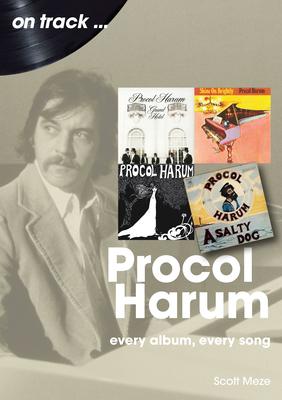Few artists have had as great an impact with their debut single as Procol Harum. Mesmerising and perplexing in equal measure, 'A Whiter Shade of Pale' remains the perfect distillation of the possibilities of psychedelia in that brief period when British pop seemed to promise a summer of love that would last forever. But as this book reveals, from the start Procol Harum envisioned a post-psychedelic landscape of the heartsick and bewildered. Through Gary Brooker's classically inspired melodies and soaring, soulful vocals, lyricist Keith Reid told harrowing stories of voyages into the darkness of the soul, through graveyards of the damned, and to the depths of madness. Aided by musicians of the calibre of Matthew Fisher and Robin Trower, Procol Harum invented and mapped out the interplay of organ and electric guitar soon to explode into prog rock's epic structures, and pioneered the integration of band and orchestra that broke the boundaries separating young musicians and the establishment. It's all here in Scott Meze's guide, from the first note to the last of a legacy that cries out to be heard.

Few artists have had as great an impact with their debut single as Procol Harum. Mesmerising and perplexing in equal measure, 'A Whiter Shade of Pale' remains the perfect distillation of the possibilities of psychedelia in that brief period when British pop seemed to promise a summer of love that would last forever. But as this book reveals, from the start Procol Harum envisioned a post-psychedelic landscape of the heartsick and bewildered. Through Gary Brooker's classically inspired melodies and soaring, soulful vocals, lyricist Keith Reid told harrowing stories of voyages into the darkness of the soul, through graveyards of the damned, and to the depths of madness. Aided by musicians of the calibre of Matthew Fisher and Robin Trower, Procol Harum invented and mapped out the interplay of organ and electric guitar soon to explode into prog rock's epic structures, and pioneered the integration of band and orchestra that broke the boundaries separating young musicians and the establishment. It's all here in Scott Meze's guide, from the first note to the last of a legacy that cries out to be heard.